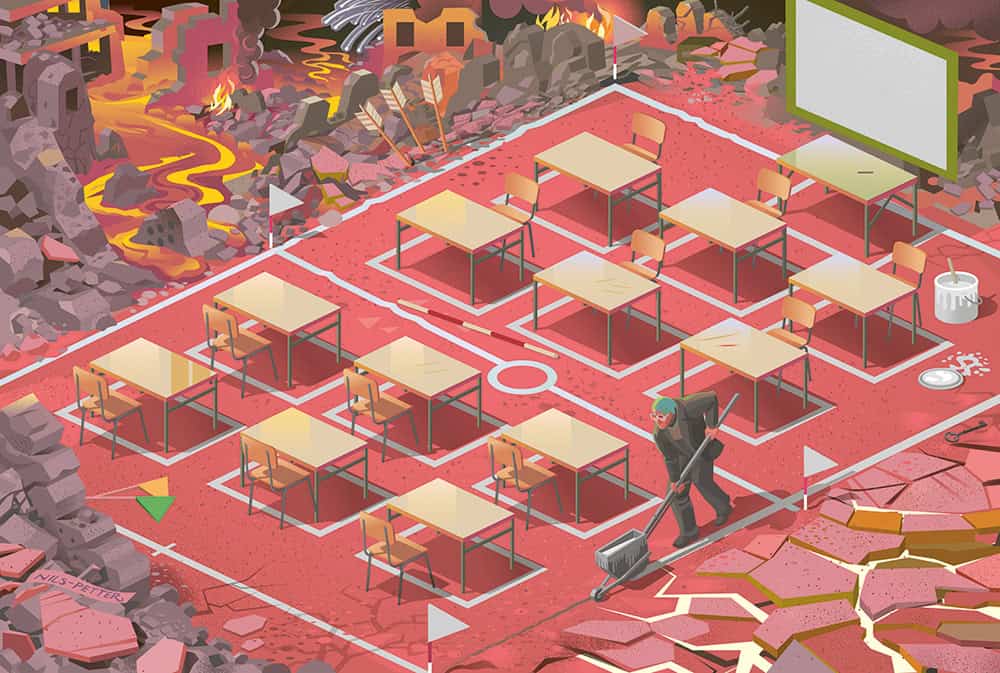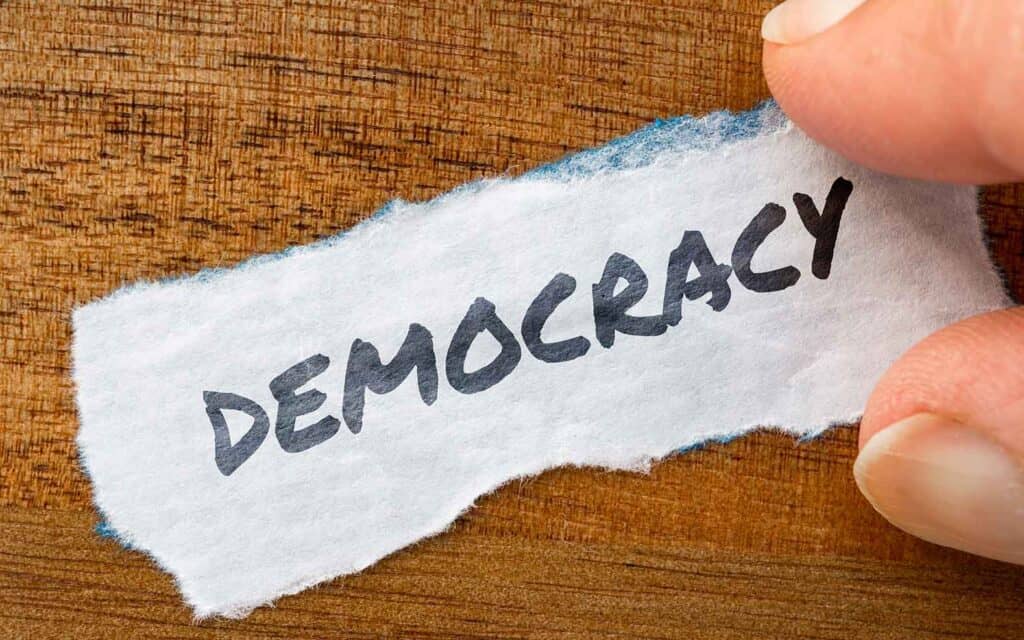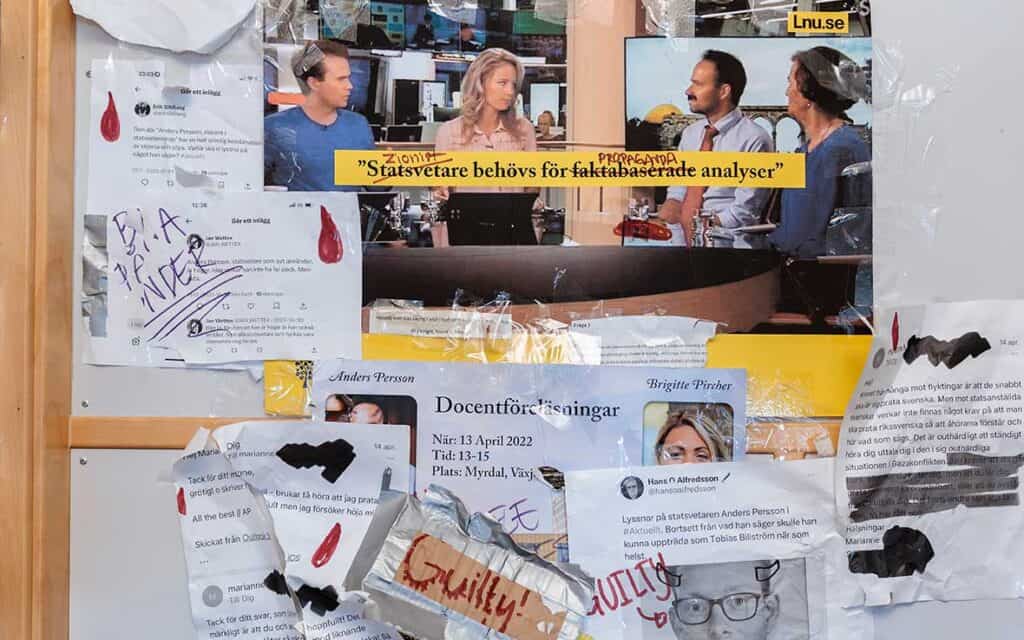Universitetsläraren has examined the decisions made by every higher education institution’s disciplinary board during the first six weeks of 2023. We found that one student at Uppsala University was issued with a warning for having submitted written assignments using Chat GPT.
The decision, which was made in early February, is the first known case where a disciplinary board has acted against cheating with the help of an AI chatbot. However, several representatives of disciplinary boards expect a growing number of cases related to Chat GPT.
More cases pending
At Malmö University, some cases are on their way in, says disciplinary board chair Per Hillbur. “We know that students have access to it. The likelihood of detecting whether they are using a chatbot is small, which makes this even more difficult for us.”

In order to determine whether using AI is cheating or not, its use must be put in relation to the task in question, he believes. “If the instructions say that you should create a text independently, you have cheated if you have used a chatbot,” he says.
If the student reports that they have used an AI chatbot, that can be trickier, he believes. “Such a case would be interesting. The student has not concealed their process. However, the teacher is free to fail the student for not having followed the instructions.”
Lack of guidelines
At the time of writing, the disciplinary board at Stockholm University has not dealt with any matters related to Chat GPT.
”In the event that cases occur where it can be proved that the answers come from an AI bot, they would be treated as cases of ghostwriting,” writes Vice-chancellor Astrid Söderbergh Widding in an email.

There are no specific guidelines regarding Chat GPT at Stockholm University yet, but a working group has been appointed to examine the issue in both the short and long term, she adds.
She also points out that the AI chatbot is not only something that the student can use to cheat, but that it can also be used as an educational tool. ”For example, by discussing the quality and shortcomings of the answers written by an AI writer.”
Linda Lundmark is a university legal counsel at Umeå University. She does not believe that students are using Chat GPT on a widespread scale yet. “If that were the case, I’m probably the last person at the university they would tell,” she says.

May have a preventive effect
All the attention that Chat GPT has attracted can also have something of a preventive effect, reasons Lundmark. “One might fear that many more people would use such a service, especially when it is also free,” she says, “but similar services, albeit for a certain cost, have existed for a very long time.
Even since before the digital era. Furthermore, students know that everyone else, including their teachers, also reads the newspapers and surfs the Internet, so they are also aware of Chat GPT.”
The chair of the disciplinary board at Malmö University, Per Hillbur, is not quite so sure that students do not use Chat GPT when producing their texts. “We are probably a little bit behind the curve in detecting cases,” he says.
But even though it is essential to be aware of technological developments and to keep an eye on AI and chatbots, he believes, the mission of a disciplinary board remains the same. “Our role is to ascertain whether a student has produced a text themself or whether it is a case of cheating. And the sources of cheating can be many,” says Hillbur.
Plagiarism the most common
Linda Lundmark notes that among the hundred or so cases that the disciplinary board at Umeå University handles annually, the vast majority involve plagiarism. Alternatively, that a student has brought a calculator or some other unauthorised aid to an examination. And it has been that way for a long time, she explains.
“With that in mind, it doesn’t feel like Chat GPT needs to lead to enormous changes. As I see it, it is not certain that there will be more of a difference than when the internet came and you could suddenly use copy-paste. Even before the introduction of the computer, essays could be bought, so the concept is not new.”
Lundmark also points out that the vast majority of the students who get caught in the plagiarism checkers’ net are very remorseful. It is rarely a question of systematic cheats who have cheated repeatedly. “Of course, there are always a few who are probably extremely skilled at cheating, which we may never even discover. We obviously need to be extra vigilant, and in more ways than before,” she says.
Can detect cheating
One tool that already exists to detect if students are cheating by using Chat GPT, or any other AI chatbot, is Chat GPT itself. The company behind the chatbot, Open AI, has developed the AI Text Classifier service, which allows you to paste a text and let artificial intelligence determine whether it was written by a chatbot or not.

Here it is worth mentioning that when Universitetsläraren’s reporter pasted the text that you are reading right now, the verdict was that it is ”unclear” whether it had been written by a chatbot or not.
As well as the above-mentioned case of the student at Uppsala University, who received a warning after admitting that they had used Chat GPT to generate assignment texts, more cases have been reported in the media. The student newspaper Lundagård, wrote about several cases where university teachers suspected students of having cheated using the chatbot.
No cases reported yet
Linda Lundmark, on the other hand, has not yet received any reports of suspected cheating using Chat GPT. The reasons for this are too early to determine, she emphasises, but it is a signal that, in the long run, Chat GPT will not necessarily be more attractive to a student who wants to cheat than the tools that already exist.
“I really believe that if it was that attractive, we would have seen it on a larger scale already. I base that on a sense of what I have seen over many years in this profession,” she says.
But even if Chat GPT’s arrival in higher education will not necessarily ”turn the entire education system on its head”, as the majority of students do not want to cheat, it is still likely that examinations will need to change in the future, she points out.
“But what do I know? I could be wrong and I might be the one who is remembered in the same way as the person who said that the internet is just a passing craze!”
THREE OPINIONS
How will Chat GPT impact teaching? And when does it become cheating?
Maria Sunnerstam, educational development officer specialising in digital tools, Gothenburg University.

“I don’t think this will lead to a revolution in the university world. Teachers will find different ways to address the opportunities and challenges. This will be another tool among the many digital tools that already exist.”
“Teachers need to be clear in their instructions about whether the use of Chat GPT is allowed or not.”
Margareta Melin, senior lecturer in media and communication studies, Malmö University.

“We actually don’t really know how it will benefit us, because we haven’t got into the mindset yet. I see it as something very exciting. Most of my students are already using Chat GPT and have got the hang of it. So now it’s up to us to use it in teaching. Universities have a responsibility there. We need to learn how to use it just as quickly as we had to learn how to use Zoom.”
“It’s cheating if they pretend that they have written a text or created an illustration themselves if they have used AI to help them.”
Fabian Taube, research advisor at the Swedish Armed Forces and docent in experimental occupational and environmental medicine, Gothenburg University.

“There is a general tendency among young adults that they don’t think they need to have knowledge themselves, because everything is already easily accessible online. The teaching culture created by recent primary school curricula has favoured such an approach. It is important to emphasise that Chat GPT cannot create new information; it retrieves likely answers from data sets. The text that is generated is also saved online, so in the long run, Chat GPT will retrieve information from data it has generated itself. This necessitates that the original data be correct.”
“If the teacher said you are not to use Chat GPT, it’s obviously cheating if you do so anyway.”















